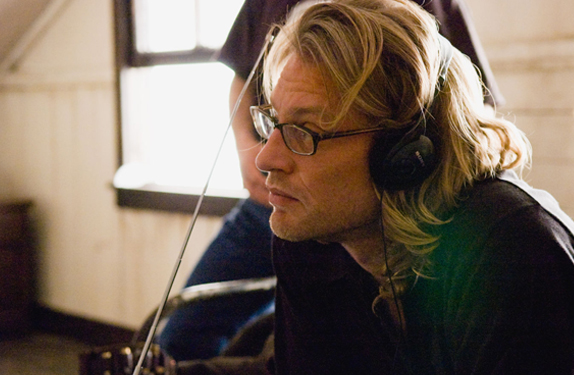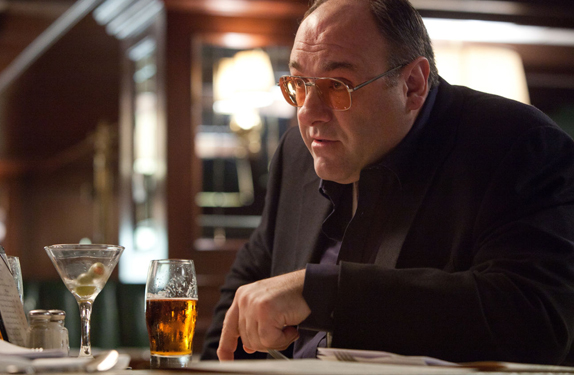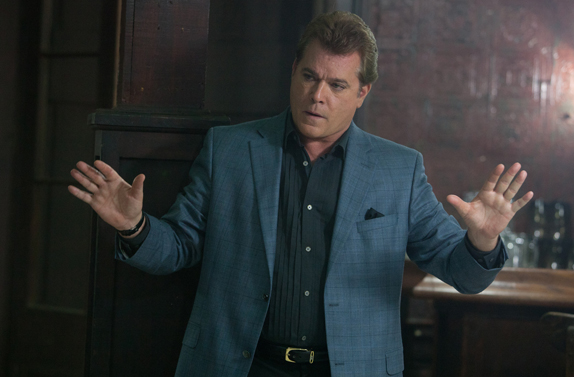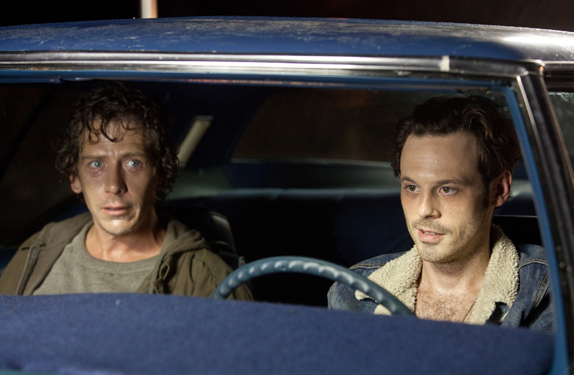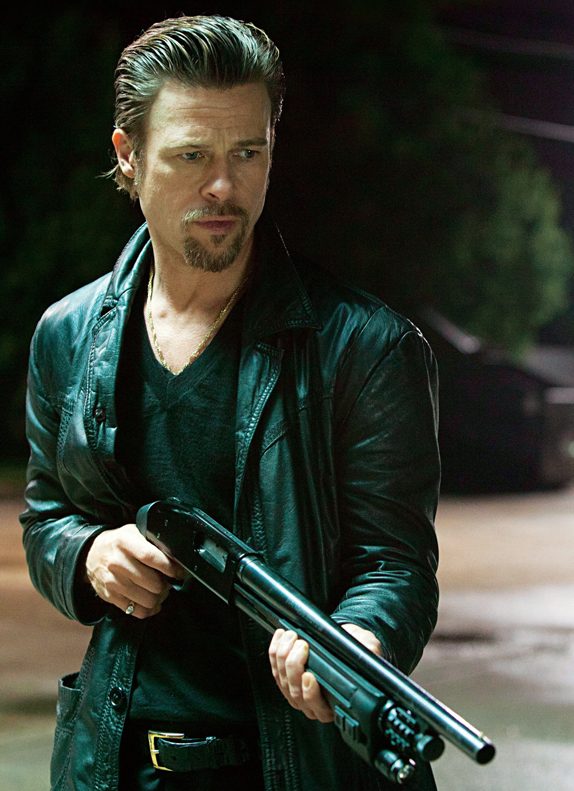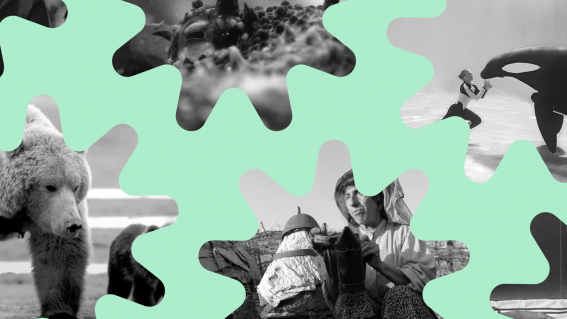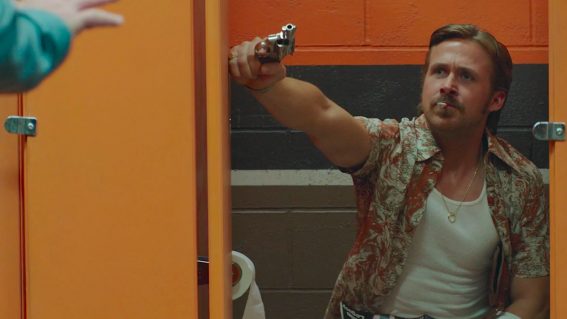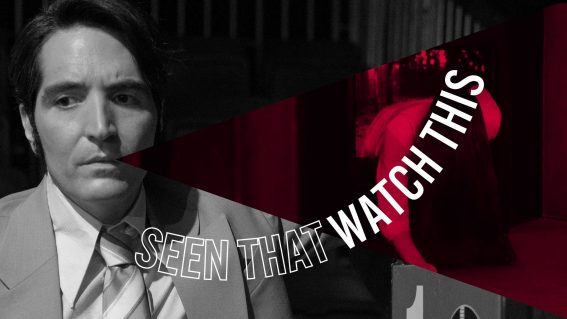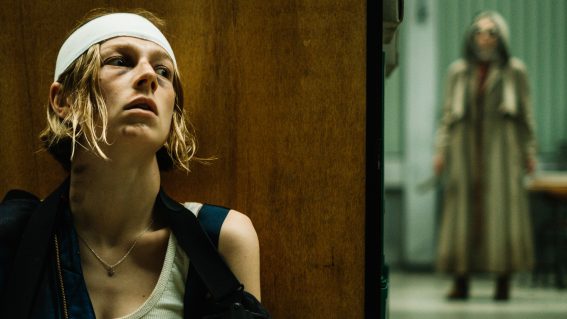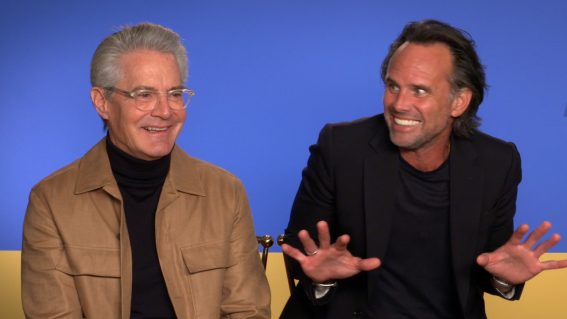The Flicks Interview: Andrew Dominik, Director of ‘Killing Them Softly’
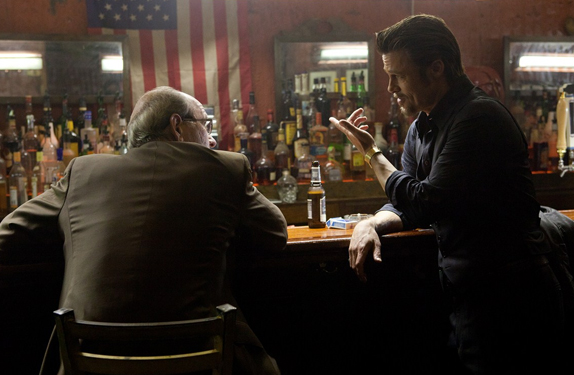
Kiwi-born Aussie director Andrew Dominik reteams with Brad Pitt (Dominik’s lead in The Assassination of Jesse James by the Coward Robert Ford) for Killing Them Softly, in cinemas from October 18. The film, based on the 1970s novel Cogan’s Trade by George V. Higgins, is a crime thriller set in gangland territories, starring Pitt as enforcer Jackie Cogan. When a couple of drug-addled low-lifes rob a poker game run by the mob, Cogan is tasked with not only tracking them down but dispensing an overtly violent punishment that will restore confidence to a grubby business built on trust.
While the collapse of the U.S. and global economy lurks in the background, Killing Them Softly depicts a criminal underworld that, like Wall Street, runs on perception, reputation and bureaucratic process – not to mention a bunch of poorly paid Average Joes making a living by doing unpleasant work for the powers-that-be. It’s a similarity that the film reinforces at every opportunity and something, Dominik tells us, is a crucial element of the movie.
FLICKS: I’ve heard you really got stuck into Higgins’ novels. What was it about them that drew you in?
Dominik: I think it was the characters, and the feeling of authenticity that the book had, even if the film became an almost satirical take on the material in the end. But, yeah, it was pretty much the characters. And the way the plot was kind of tacked in to the corners of the dialogue, that it seemed to be more interested in describing the attitude and the life of these people, the whole picture of that – of the world, their feelings about women and so forth. That was the initial attraction if you like.
So the source material provided more than just the sort of gangster plot we’ve seen so many times before?
Well, you know, plot is not really interesting to me other than that it gives you a reason to sit down and watch the people. But you know, the object of that plot, as you said, is very, very simple, you know. It is a really, really sort of simple crime and punishment type story in the criminal world. Then I discovered what it really was, and that it was a story about an economic crisis. And when I started looking from that point of view, I started to see how the movie can be something, you know, a little more if you like.
What helped you interpret the novel in an economic light?
The economic collapse was all around me. It was just after the U.S. election. And everyone you spoke to was talking about the economy and the economy was on TV. It was “the economy, the economy, the economy”, you know. And here I was, with the story that was about an economic collapse in a really small sort of economic ecosystem – where you’ve got this economy which is supported by gambling, which collapses because of the failure to regulate. And then when they deal with the problem, not only do they have to deal with the problem but they have to deal with everyone’s perception of the problem. So there’s, you know, political difficulties involved and I just came to see how perhaps describing an economic collapse in a criminal society just made it more simple. You know what I mean? It was kind of a simple microcosm of what was going on in the larger world.
The film seems particularly tough on the United States. How are Americans dealing with that?
Well, I guess America’s not a place that really likes, you know, to feel criticized… It wasn’t really necessarily my intention to criticize America, but… well, I guess it is actually. [Laughs]. Yeah, Americans take umbrage at that kind of thing. You know, in Australia, pointing out a person’s weaknesses, it’s a way of saying, “I see you and I accept you.” In America, if you make fun of somebody, they feel like you’re attacking them, you know. But you know, on the other hand, the mood in America is something that is very disgruntled. So even at the test screening of the film the audience really loved it, you know, the basic sort of man on the street audience.
What the film is being critical about is not so much capitalism as cronyism.
What the film is being critical about is not so much capitalism as cronyism. I think people over there feel really… I think people in America feel ripped off. They feel ripped off by the government. They feel like it’s not representing their interests but representing the interest of corporations. I guess what I’m saying in a long-winded way is the reaction to it was mixed, but, you know, primarily the movie sets out to be fun, and it’s supposed to be a comedy. “A spoonful of sugar makes the medicine go down” was kind of the approach to the material. And consequently, it’s kind of deviated away from what initially attracted me to the whole thing, which is its feeling of authenticity… then I set it in Everytown USA and made it with this kind of comic style that’s so much like a 40’s comedy.
There are many stylistic elements that set Killing Them Softly apart from a standard underworld flick, and one of them is how you let your characters talk at length on screen. Was this how you envisaged it, or did it come about when you put together the great cast?
No, no, it’s the way it was written, and, believe me, there was a lot more dialogue at various points, but it was just about how much you could stand. Because there’s a certain amount that, you know, you just switch off after that. What I was really interested in were the people, and the fact that work is the last thing that they really want to deal with. Because their work was really unpleasant, and there are all the feelings that they have to repress in order to make a buck. But I like to spend time with people like that. I can sit there and watch people talk endlessly.
It doesn’t seem like the kind of film Hollywood is gagging to make. Having Brad Pitt on board must have helped.
You know, Brad always makes things a little easier. Yeah. I guess that’s the short answer. I mean the movie, it’s a low budget film, it’s like a $15 Million picture, so pretty much you can do what you want, you know. As long as it comes in at a reasonable length and under budget then, you know, they’ll let you do it…
The America you portray in the film isn’t very optimistic. How do you see it now?
Well it seems like the economy is looked a little more on track, right? It’s gotten beyond the moment where they thought ATMs were going to stop dispensing cash and global civilization was gonna collapse – which is what Wall Street was scaring everybody with, when they demanded like a trillion dollars from the taxpayers. You know? I think capitalism is here to stay.
Do you think coming from another part of the world makes it easier to comment on American society?
Yeah, very much, I do. You know, having been raised on American culture, you go there and you see the gap between how they see themselves and how they actually are. But people have always said that cinema is really revealing of countries, in terms of how they go about defining themselves, you know. And they talk about Rome… you know, Italy at the end of the Second World War and they talk about Germany, I guess between the wars, and they talk about France, and the New Wave. And then there’s America which is constantly, you know, trying to define itself through cinema. Which is what’s so fascinating I guess about American cinema.
Can you give us a hint at what you’re thinking about doing next?
I want to make a movie about Marilyn Monroe, and it’s called Blonde and it’s kind of like a horror film about like a little orphan girl that gets lost in the wood, if you like.


